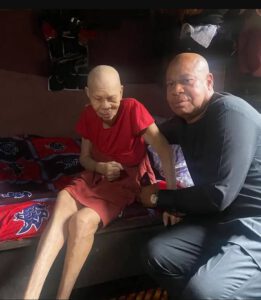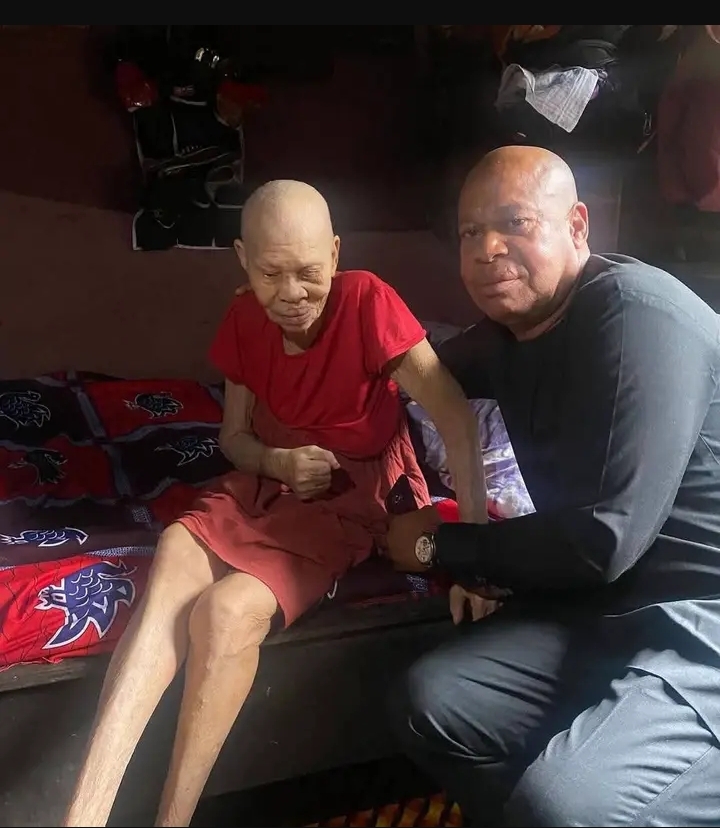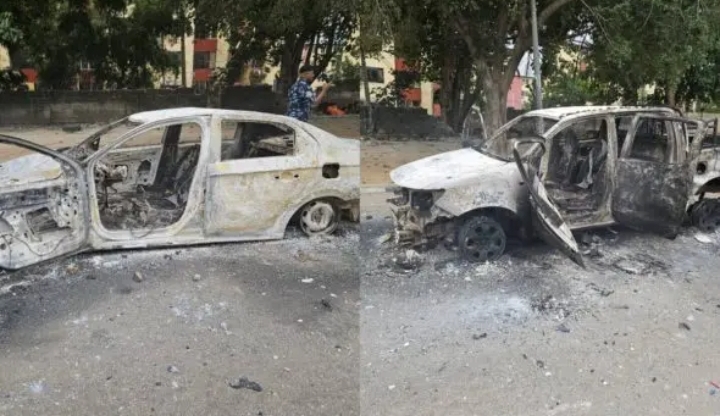
By James
Kindly share:
He was just 22 years old when he purchased the generator from one Segun Ajibade. Believing the item to be legitimate, Ogbonna later resold it to a third party. But two weeks later, in a shocking twist, Ajibade returned—this time with the police—claiming the generator had been stolen. Both men were arrested on the spot.
What followed was a legal and personal nightmare. Ogbonna, now 48, alleges that during interrogation, he was beaten and forced to sign a written statement he couldn’t read or understand. With no legal representation and no one to defend his side of the story, he was remanded in custody in 1999.
In 2003, at just 26 years old, he was convicted and sentenced to death for receiving stolen property—an offence for which Ajibade, the original seller, had already initiated police action. He was transferred to Kirikiri’s notorious death row, where he would remain for the next 26 years. The years that followed were marked by isolation, neglect, and fading hope.
The tide finally began to turn in early 2025 when Nigerian TikToker and social media activist Olumide Ogunsanwo, popularly known as Sea King, highlighted Ogbonna’s story on TikTok. The post quickly went viral, sparking public outrage and a flood of calls for justice.
Among those moved by the story was Simon Oshi, a philanthropist from Enugu State, who traced Ogbonna’s family background and discovered he was from Abia State. Oshi personally visited Kirikiri with a legal team and verified Ogbonna’s story and identity. He then reached out to Governor Alex Otti of Abia State.
Governor Otti acted swiftly. He directed the Abia State Attorney General to investigate and liaise with the relevant justice ministries in Lagos and Ogun states. His intervention led to the coordinated review of not just Ogbonna’s case, but also those of other wrongly convicted inmates.
On July 6, 2025, the Lagos State Government officially released Ogbonna Igbojionu alongside two other wrongly imprisoned men: Kolawole Oladeji and Olawale Adediji. Oladeji, a technician, had merely repaired the generator in question and had no knowledge it was stolen—yet he too had been condemned to death. Adediji was similarly a victim of flawed investigation.
Segun Ajibade, the man who sold the stolen generator and initiated the police arrest, was pardoned in 2016 and has since faded from public view. The real culprit walked free, while the innocents he helped implicate languished in prison for decades—a damning indictment of Nigeria’s flawed criminal justice system.
The reunion between Ogbonna and his mother on July 6 at the Abia State Government House was deeply emotional. Videos of their tearful embrace went viral across social media, drawing sympathy and renewed calls for justice reform. His mother, now elderly and frail, had held on to hope for 26 long years.
“I thank Governor Alex Otti for giving me another chance at life,” Ogbonna said during a brief address. “Many have died in that prison. I never imagined I would be free again.”
Governor Otti promised full support for the reintegration of all three men into society. He directed state commissioners to ensure they receive psychosocial care, housing, and vocational assistance. “It is not enough to free them—we must help them heal and rebuild,” the governor said.
The case has reignited nationwide debate over wrongful convictions, prison reform, and the need for robust public legal defense systems. Legal analysts have pointed out that many others remain behind bars across Nigeria for minor or fabricated offences—often without trial, legal aid, or family support.
“This story is heartbreaking,” said Chinedu Mordi, a human rights lawyer. “It’s not just about Ogbonna. It’s about the system that allowed this to happen—and continues to do so.”
As Ogbonna begins the slow journey of rebuilding a life stolen from him by injustice, many are left asking: how many more are still trapped in Nigeria’s prisons, forgotten by the world?
Picture credit: @ozor Ndi Ozor





